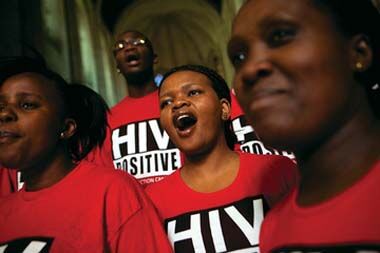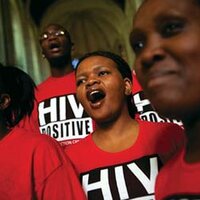General recommendations for dealing with sexual violence
- HIV/AIDS is one of several physical health issues to be taken into account in case of SGBV (sexual and gender based violence), alongside with sexually transmitted infections, unwanted pregnancies, injuries, etc..
- Care for victims of shall be provided by experts (medical personnel, psychologist/psychiatrists, community health workers, legal counsellors, etc.). While all of them having their areas of expertise, it is important that all.
- Understand each others roles and responsibilities;
- Know and apply referral guidelines and ensure that timely support is given (e.g. HIV-PEP, emergency contraception, Voluntary Counselling and Testing).
- Ensure adequate services are available when creating a demand
- Include the psycho-social dimension in the comprehensive approach to prevent and respond to SGBV (especially, but not only in the context of crisis).
- Include an advocacy and policy changing dimension in order to achieve sustainable changes.
- SGBV roots in social and particularly gender inequalities. They can be decreased through a systematic mainstreaming of gender and human rights, in whatever development intervention (be it in the area of governance, food security, climate change, water, etc.) .
(By Marie Gilbrin, SDC, aidsfocus.ch conference 2014)
Referral guidelines for NGO-Partners South
1. Know to whom to refer and ensure that timely support is given (medical, psychosocial, legal).
- Have latest information on services available (e.g. medical services providing emergency contraception, HIV-testing, HIV-PEP, services providing psychosocial counselling and support, police station) with list of names, contact address, etc.
- Know the procedure for accessing the services
2. Have a good understanding of the law that protect victims and the legal processes
3. Give a pamphlet with important information for the survivor of sexual violence to remember; for an example:
- Important contact numbers
- How to take PEP and side effects
- Next hospital visits
- Case number if the case was opened
4. Fear, self-esteem and rights: Reassure the survivor of violence that she/ he has rights:
- To be treated with respect
- Not to take responsibility for anyone’s bad behavior
- To be angry
- To say
- To make decisions
- To protest against unfair treatment or criticism
- To decide on a different course of action
Tips or guidelines that people could use when subjected to acts of violence
- Get to a safe place and find someone you can trust. Tell them what happened. It’s very important that you write down the name and contact details of this person if they are a stranger as they are what are known as a “first person report”. This is the person that may be called to court to give evidence on your behalf.
- Try not to clean yourself, or throw away your clothes that you were wearing as these contain evidence needed if you wish to open a case with the police. Wrap them in a brown bag or newspaper, not in plastic as this will destroy the evidence.
- Do not take any alcohol or drugs after the rape to try and calm down as it may impact on the medical care that you may need to receive as well as the fact that you need to be able to give a clear statement to the police about what happened.
- It is very important to seek medical assistance as soon as possible, preferably within 72 hours. This is because medication such as the Morning After Pill and Post Exposure Prophylaxis which can prevent pregnancy and HIV infection respectively work best the sooner you take them otherwise they become ineffective after 72 hours.
- If you wish to report an act of violence at a police station, this has to happen at station that is closest to where you live. However, if you have experienced an act of violence and need to go somewhere safe you can go to any police station and they will transfer your case file to the appropriate police station at a later stage.
(By Sinikiwe Biyela, LifeLine, aidsfocus.ch conference 2014)


